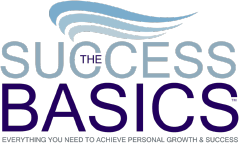Effective communication is essential for personal and professional success. It enables you to convey your ideas clearly, build strong relationships, and resolve conflicts efficiently. Whether in the workplace, at home, or in social settings, good communication skills can significantly enhance your interactions and overall well-being. Here’s a guide to improving your communication skills.
The Importance of Effective Communication
Building Relationships: Clear and empathetic communication fosters strong, healthy relationships in both personal and professional settings.
Conflict Resolution: Good communication skills help resolve misunderstandings and conflicts amicably.
Increased Productivity: Clear instructions and feedback ensure tasks are understood and executed correctly, boosting productivity.
The Importance of Effective Communication
Building Relationships: Clear and empathetic communication fosters strong, healthy relationships in both personal and professional settings.
Conflict Resolution: Good communication skills help resolve misunderstandings and conflicts amicably.
Increased Productivity: Clear instructions and feedback ensure tasks are understood and executed correctly, boosting productivity.
Enhanced Persuasion: Strong communication skills enable you to persuade and influence others effectively, whether in negotiations, presentations, or everyday interactions.
Key Communication Skills to Develop
Active Listening
Focus on the Speaker: Pay full attention to the speaker, making eye contact and showing interest through nods and verbal acknowledgments.
Avoid Interrupting: Let the speaker finish before responding. Interruptions can disrupt the flow of conversation and cause misunderstandings.
Reflect and Clarify: Summarize what the speaker has said to ensure understanding. Ask questions if something is unclear.
Key Communication Skills to Develop
Active Listening
Focus on the Speaker: Pay full attention to the speaker, making eye contact and showing interest through nods and verbal acknowledgments.
Avoid Interrupting: Let the speaker finish before responding. Interruptions can disrupt the flow of conversation and cause misunderstandings.
Reflect and Clarify: Summarize what the speaker has said to ensure understanding. Ask questions if something is unclear.
Clear and Concise Expression
Be Direct: Communicate your message clearly and directly, avoiding unnecessary jargon or complex language.
Stay on Topic: Stick to the main points and avoid deviating from the subject to keep the conversation focused.
Use Simple Language: Choose words that are easy to understand, ensuring your message is accessible to your audience.
Non-Verbal Communication
Body Language: Use positive body language, such as open posture, eye contact, and appropriate gestures, to reinforce your message.
Facial Expressions: Ensure your facial expressions match your words to convey sincerity and emotion.
Tone of Voice: Use a tone of voice that suits the context of the conversation, whether it’s calm, enthusiastic, or serious.
Empathy and Emotional Intelligence
Understand Emotions: Be aware of your emotions and those of others. This helps in responding appropriately and with empathy.
Be Direct: Communicate your message clearly and directly, avoiding unnecessary jargon or complex language.
Stay on Topic: Stick to the main points and avoid deviating from the subject to keep the conversation focused.
Use Simple Language: Choose words that are easy to understand, ensuring your message is accessible to your audience.
Non-Verbal Communication
Body Language: Use positive body language, such as open posture, eye contact, and appropriate gestures, to reinforce your message.
Facial Expressions: Ensure your facial expressions match your words to convey sincerity and emotion.
Tone of Voice: Use a tone of voice that suits the context of the conversation, whether it’s calm, enthusiastic, or serious.
Empathy and Emotional Intelligence
Understand Emotions: Be aware of your emotions and those of others. This helps in responding appropriately and with empathy.
PUBLISHED: MAY 1, 2020
How to
Improve Your Communication Skills
Improve Your Communication Skills
What To Do When Your Job Is Stressing You Out
Did you know that the average person spends the bulk of their waking hours at work? With so much time being spent at the office, it is no wonder that it can also be one...
You’re probably already familiar with the old saying “Music calms the savage beast” that saying is popular because it’s true. There are few things in life that have the power to change our state of mind like music does.

"There are many obstacles and many battles that you will have to fight during your lifetime."
Don't Give Up, It's Not Too Late To Follow Your Dreams
4 Very Important Questions You Need To Ask Yourself Today



Relax And Elevate Your Mood With Music




Listen More, Talk Less, And Achieve Great Things
Now Is The Time For You To Discover Your Personal Mission



The Importance of Building Healthy Relationships
Manage Your Time Effectively and Achieve Your Goals
Manage Your Time Effectively and Achieve Your Goals
Show Empathy: Demonstrate understanding and compassion towards others’ feelings and perspectives.
Manage Emotions: Keep your emotions in check, especially in challenging situations, to maintain a constructive dialogue.
Effective Feedback
Be Constructive: Provide feedback that is helpful and aimed at improvement rather than criticism.
Be Specific: Offer specific examples of what is done well and what needs improvement.
Be Timely: Give feedback promptly to ensure it is relevant and can be acted upon immediately.
Practice Active Listening
Engage in Conversations: Practice active listening in daily conversations, focusing on truly understanding the speaker.
Participate in Group Discussions: Join group discussions or meetings to enhance your listening and speaking skills.
Enhance Your Vocabulary
Read Regularly: Read books, articles, and other materials to expand your vocabulary and improve your ability to express yourself.
Learn New Words: Make a habit of learning new words and incorporating them into your conversations.
Seek Feedback
Ask for Input: Request feedback from friends, family, or colleagues on your communication skills.
Reflect on Feedback: Reflect on the feedback received and make necessary improvements.
Conclusion
Improving your communication skills is a continuous process that requires practice and dedication. By developing active listening, clear expression, and empathy, you can enhance your interactions and build stronger relationships. Effective communication is a cornerstone of personal and professional success, opening doors to new opportunities and fostering a positive environment in all aspects of life. Start today, and watch your communication skills transform your life for the better.
Manage Emotions: Keep your emotions in check, especially in challenging situations, to maintain a constructive dialogue.
Effective Feedback
Be Constructive: Provide feedback that is helpful and aimed at improvement rather than criticism.
Be Specific: Offer specific examples of what is done well and what needs improvement.
Be Timely: Give feedback promptly to ensure it is relevant and can be acted upon immediately.
Practice Active Listening
Engage in Conversations: Practice active listening in daily conversations, focusing on truly understanding the speaker.
Participate in Group Discussions: Join group discussions or meetings to enhance your listening and speaking skills.
Enhance Your Vocabulary
Read Regularly: Read books, articles, and other materials to expand your vocabulary and improve your ability to express yourself.
Learn New Words: Make a habit of learning new words and incorporating them into your conversations.
Seek Feedback
Ask for Input: Request feedback from friends, family, or colleagues on your communication skills.
Reflect on Feedback: Reflect on the feedback received and make necessary improvements.
Conclusion
Improving your communication skills is a continuous process that requires practice and dedication. By developing active listening, clear expression, and empathy, you can enhance your interactions and build stronger relationships. Effective communication is a cornerstone of personal and professional success, opening doors to new opportunities and fostering a positive environment in all aspects of life. Start today, and watch your communication skills transform your life for the better.